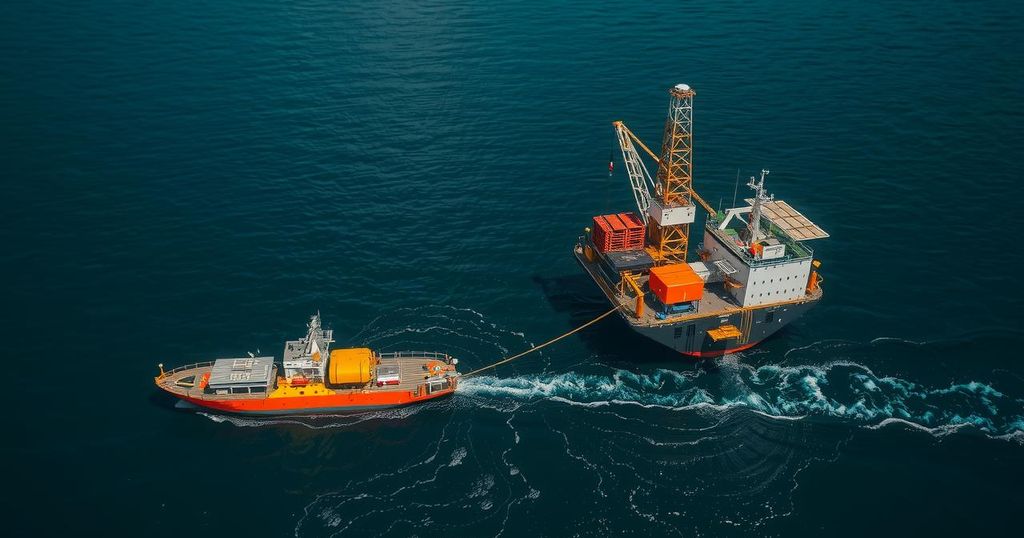Gulf Oil Operators Evacuate Personnel Ahead of Tropical Storm Rafael

As Tropical Storm Rafael approaches the Gulf of Mexico, major oil companies, including BP, Chevron, Equinor, and Shell, are evacuating personnel from offshore platforms. The storm threatens to disrupt significant oil and gas production while contributing to market volatility amid existing geopolitical tensions and election uncertainties. Rafael is anticipated to be the 17th named storm of the season, with the potential to exacerbate disruptions already associated with prior storms this year.
Energy companies in the Gulf of Mexico are initiating evacuations in anticipation of Tropical Storm Rafael, which poses potential threats to offshore oil and gas production. Major operators such as BP, Chevron, Equinor, and Shell are taking precautionary measures by relocating non-essential personnel from various platforms to ensure safety and maintain operations. BP has begun moving workers from platforms such as Argos and Thunder Horse, while Chevron and Shell are also evacuating staff from sites like Petronius and Appomattox. Equinor has opted for a complete shutdown of production until personnel can be safely evacuated. Tropical Storm Rafael is currently exhibiting winds of up to 60 mph and may escalate to hurricane status as it approaches the Cayman Islands and Cuba. Although there is a possibility that it might weaken back to a tropical storm before impacting the U.S. Gulf Coast, previous storms this year have already caused considerable disruptions. Data indicates that Rafael threatens to disrupt approximately 4.9 million barrels of daily oil production and nearly 6.39 billion cubic feet of natural gas output in the Gulf. As the Atlantic hurricane season progresses, Rafael becomes the 17th named storm and the tenth since September 24. The Energy Information Administration’s earlier forecast anticipated up to 25 named storms this year, emphasizing the potential for significant disruptions within the U.S. oil and gas sector. Concurrently, geopolitical tensions and domestic political uncertainties surrounding the upcoming elections contribute to the already volatile market dynamics. On Tuesday, crude oil prices responded with WTI rising 1.54% and Brent reaching $76.14, reflecting market apprehensions. Julianne Geiger reported for OilPrice.com, highlighting the ongoing challenges faced by the energy sector amidst adverse weather conditions.
The Gulf Coast is highly susceptible to tropical storms and hurricanes during the Atlantic hurricane season, which typically runs from June 1 to November 30. These weather events can significantly interrupt oil and gas production, leading to economic implications for the energy market. Companies often initiate evacuations and halt operations in preparation for storms to safeguard personnel and mitigate risks. This season, the frequency and intensity of storms have raised concerns about the resilience of the Gulf’s energy infrastructure, particularly as geopolitical factors further complicate the industry’s stability and pricing.
In summary, as Tropical Storm Rafael approaches the Gulf of Mexico, oil operators are taking decisive action to protect their workforce and mitigate production losses. The storm’s potential impact on oil and natural gas output highlights the vulnerabilities within the energy sector amidst a challenging hurricane season. Additionally, the interaction of geopolitical uncertainties with market dynamics may further complicate the industry’s recovery and stabilization efforts in the coming months.
Original Source: oilprice.com







